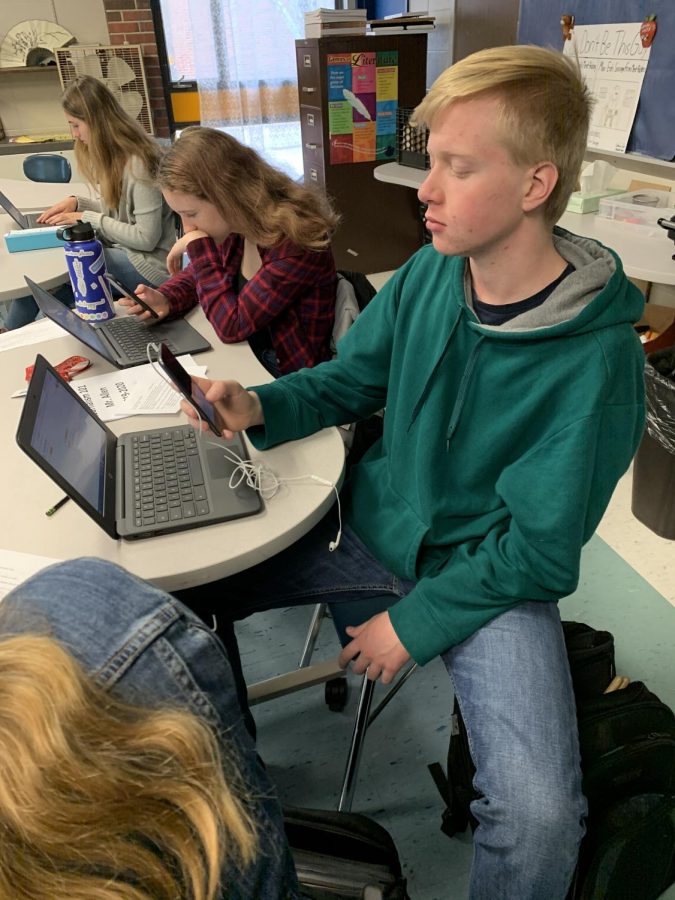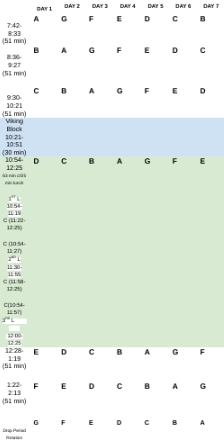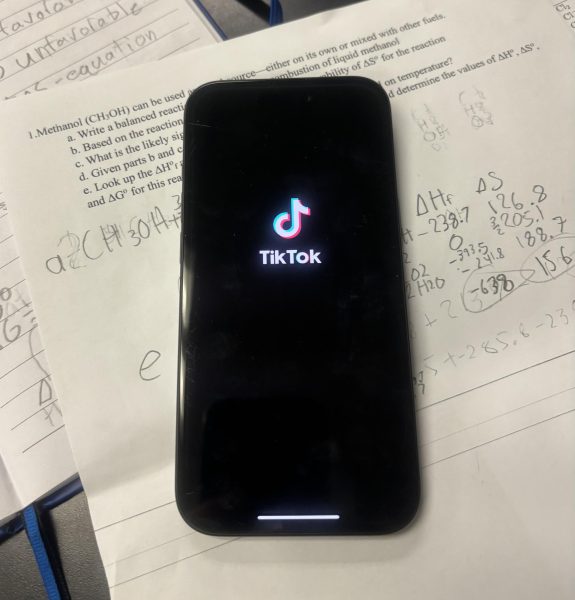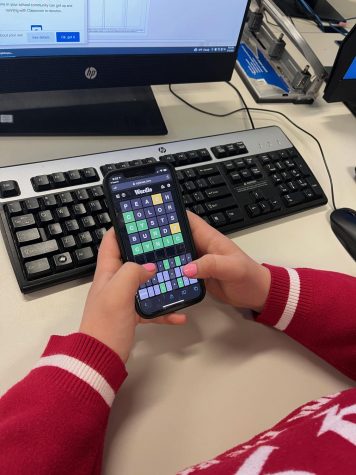Cracking Down on the Cellphone Policy
Teachers are getting tired of being ignored so here’s what they are starting to do
Junior Nathaniel Howard and Senior Marcella Hubbard – Brucher secretly use their phones in class
Although we are already in the second quarter, teachers have just started to cut back on phone use by students in their classrooms. Teachers have started putting what are known as ¨phone holders¨ in their classrooms to try and implement some stricter rules instead of just allowing kids to put them in their backpacks. While phones can be beneficial, they are more of a distraction than anything. Many students spend all of the class period on their phone or pick it up as soon as it lights up with a notification. Students argue that they often experience FOMO also known as a fear of missing out when they don’t have their phones. However, what these students believe they are missing out on is unknown because everyone they are talking to is also in school.
According to the article Cell Phones in the Classroom: Learning Tool or Distraction by Oxford Learning, ¨Students check their phones in the classroom an average of more than 11 times a day. That can add up to a lot of time spent distracted from schoolwork. And when students are distracted, it’s a recipe for extra stress, frustration, and catch-up time for everyone.¨ In my first few years of high school, I found myself having to do a lot of work in a short period of time because I was always on my phone and not doing what I was supposed to in class. In the past year or two I have noticed that the older we get the less attached to our phones we are. Most students in their senior but even junior year are really cracking down and worrying about college, so they aren’t as afraid about whether they are missing out if they go without their phones for a few hours. Most students are fighting for the right to use their phones. They argue that it is their choice, they are the ones missing out on the information. Being 15-18 students should be able to decide when they want to use their cellphones. If students cannot use their phone appropriately that is a problem for them and their parents to fix. Educators should not be responsible for enforcing a phone policy. While some teachers find it disrespectful when kids use their phones while they are trying to teach, it is ultimately the students who are missing out on whatever they are doing.
An article from Rutgers titled Cellphone Distraction in the Classroom Can Lead to Lower Grades, Rutgers Study Finds states their ¨ study found that having a device didn’t lower students’ scores in comprehension tests within lectures but did lower their scores in the end-of-term exam by at least 5 percent, or half a grade.¨ What this is saying is that when students are on their phone they are still hearing what’s going on in class even if they are not fully paying attention but when it comes time for the final they don’t remember what they learned because they didn’t actually absorb the information.
Still, phones can actually be quite useful in the classroom. Most people think they should be used more frequently and kept to academics only, but in reality it is very hard to ensure teens are doing what they are supposed to while they are on their phones. Once kids start driving parents become more concerned. Many parents like for their kids to tell them when they arrive at or depart from their location. ¨During a crisis, cell phones allow students to notify their parents that they’re safe. While cellphones can be useful in a handful of cases they are more of a distraction than anything. They cause students to hand in work late if at all. Students can keep family members updated on the situation as well. It also allows them to clarify to their parents any rumors that may be circulating on social media, ¨ is stated in the article Student Cell Phones in School Crisis Situations: Pros and Cons by LearnSafe.

Hello everyone. My name is Sydney Marsh and I am a senior at Triton High School. I have 2 jobs, I work on a farm and at a nursing home. I also play lacrosse....










